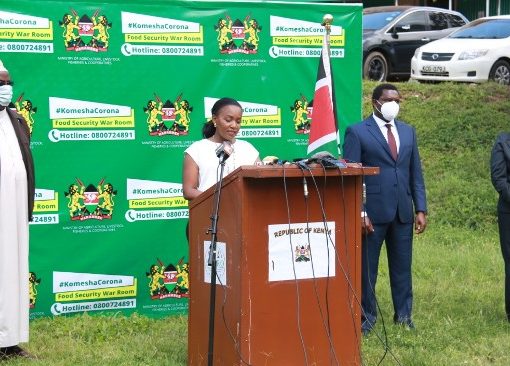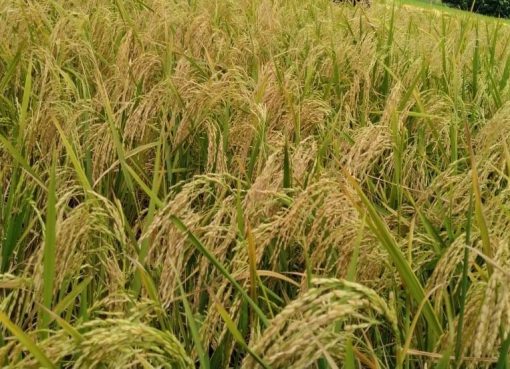The Global Alliance for Improved Nutrition (GAIN) and partners have launched a regional competition inviting innovative solutions for enhancing the nutritional value of food.
Dubbed “The Fortify Forward Innovation Challenge 2025”, applications from entrepreneurs and startups, researchers and academics, innovators, Small and Medium-sized Enterprises (SMEs), food producers and suppliers (including farmers, millers, and processors) are being urged to apply.
The application window is open until March 28, 2025, for submission of entries of innovative solutions that improve access to essential vitamins and minerals through either large-scale industrial food fortification or nutrient-enriched crops (bio fortification and its related processes).
GAIN’s Executive Director, Lawrence Haddad, said the competition will be done through fortification and also improve nutrition interventions across entire food systems in Kenya and seven other countries in East and West Africa.
“Fortify Forward Innovation Challenge, seeks scalable and sustainable innovations related to fortification of foods that reach vulnerable populations,” he said, considering malnutrition has been a major public health challenge in Kenya, like many parts of the continent, mostly among children.
GAIN Kenya Country Director, Ruth Okowa, expounded that an estimated 23 million Kenyans are undernourished, and malnutrition in all its forms remains a pressing concern disproportionately affecting women, children, and vulnerable communities, particularly in urban slums and arid and semi-arid regions.
The persistence of under nutrition, micronutrient deficiencies, and rising cases of overweight and obesity, she said, threatens not only individual well-being but also the country’s social and economic progress.
Okowa explained that the Challenge is a timely initiative that will address some of the most pressing malnutrition (micronutrient deficiency) concerns in the country.
To be eligible for the Fortify Forward Innovation Challenge, applicants must be agencies or individuals based in one of the participating countries, with workable, and proven innovations that can be from diverse sectors, including agriculture, food processing, logistics, nutrition, public health, agro technology, or others.
The innovations must have been tested and operational for at least a year, and should have plans to scale-up in future to address nutritional deficiencies in vulnerable communities through food fortification (industrial food fortification and biofortification)
The Fortify Forward Innovation Challenge 2025 will award US$ 5,000 to each of the ten winners across each of the three competition categories.
The categories are: profitable and sustainable business models for fortification; overcoming challenges of aggregation and/or segregation in biofortification; and innovative vehicles for food fortification.
Winners will also receive technical assistance to implement and scale their solutions, tailored mentorship from leading experts, training, visibility, and networking opportunities.
This challenge to improve the nutritional quality of staple foods from farm to fork is organised by GAIN, and supported by The Waterloo Foundation, the Funguo Programme by the United Nations Development Programme-Tanzania, DSM-Firmenich, the NMB Foundation, the Alliance of Biodiversity & CIAT, and the University of Abomey Calavi-Benin.
The Kenya National Micronutrient Survey of 2011 depicted the country as burdened by high micronutrient deficiencies, with the most prevalent being zinc, vitamin A, iron, and iodine deficiencies.
Zinc deficiency prevalence rates stood at 70 per cent, with preschool children being most affected at 81.6 per cent, school-age children at 79.0 per cent, pregnant women at 67.9 per cent, and non-pregnant women at 79.9 per cent.
By Wangari Ndirangu





